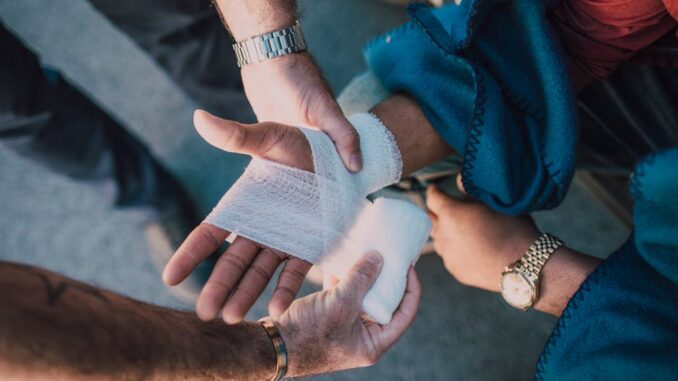
Summary
This article offers guidance for individuals recovering from opioid addiction, focusing on developing coping mechanisms. It emphasizes the importance of structure, stress management techniques, healthy habits, and professional support in achieving long-term sobriety. The article provides actionable steps for building resilience and maintaining a fulfilling life free from addiction.
** Main Story**
Recovering from opioid addiction? It’s tough, no doubt about it, but definitely achievable. The key, honestly, is building healthy coping mechanisms. It’s not just about stopping the drug use; it’s about creating a life where you don’t need it anymore. Let’s break down how to do that, step-by-step.
1. Establishing Structure and Routine: Your Daily Anchor
Think of your daily routine as an anchor in a storm. You need that stability. A structured day brings control and reduces anxiety, which, as you probably know, is a major relapse trigger. I remember when my cousin, Mark, was getting clean; he meticulously planned every day, down to the hour. What a change it made for him! So, start simple: plan your day from wake-up to bedtime. Include healthy meals – really important – exercise, work (or productive activities), and, crucially, relaxation. Consistent sleep is vital for your physical and mental well-being, too, so don’t skip on that. A regular routine minimizes idle time; that’s where negative thoughts and cravings tend to fester. It really does.
2. Stress Management Techniques: Taming the Beast
Stress is the common trigger. You’ve got to learn to manage it effectively. Mindfulness practices, like meditation and deep breathing, can seriously help. Even a few minutes daily can make a difference; I’m not even kidding. You can find free guided meditations online. Give them a shot. Yoga and other exercise help too, reduce stress, improve mood, and release endorphins, which are your body’s natural pain relievers. It’s like a natural high, almost.
3. Building Healthy Habits: Replacing the Old with the New
Think of recovery as a swap. You’re replacing destructive habits with healthy ones. Regular exercise is crucial, I can’t stress that enough, for both physical and mental well-being. It reduces stress, improves sleep, and releases those endorphins. A balanced diet is also key, providing the nutrients you need for physical healing and mental clarity. Trust me, your body needs it right now. And avoid places and people associated with past drug use. Seek supportive relationships that encourage sobriety, it’s like finding allies in a war.
4. Seeking Professional Support: You’re Not Alone
Professional guidance is vital. Don’t try to go it alone, seriously. Individual and group therapy offer valuable support, coping strategies, and relapse prevention techniques. Therapists can help address underlying issues – trauma, mental health – that contributed to the addiction. Support groups are also fantastic, offering a safe space to share experiences, connect with others, and build a sober social network. And don’t rule out medications, they can manage withdrawal symptoms and reduce cravings; talk to a doctor about those. Remember, there isn’t a one-size-fits-all solution.
5. Identifying and Managing Triggers: Knowing Your Enemy
Triggers: people, places, things, situations that make you want to use. Identifying them is essential. Keep a journal, track situations that bring on cravings or negative emotions. Once you know your triggers, make a plan to manage them. Maybe avoid certain situations, practice mindfulness, or call a support person. Look, overcoming triggers is a process, it takes vigilance and self-awareness. It won’t happen overnight, but it will happen.
6. Building a Support Network: Your Tribe
A strong support network is so crucial. Family, friends, support groups, therapists, sponsors. All of them. Supportive relationships give you encouragement, accountability, and a safe space to share struggles and successes. It’s about building a sober social network, too. Connecting with others who get it can reduce feelings of isolation. You’re not in this alone. I can’t stress that enough, find your tribe!
7. Relapse Prevention: Planning for the Worst, Hoping for the Best
Look, relapse happens. It doesn’t mean you’ve failed. It’s a learning opportunity. If it occurs, get help immediately to get back on track. Develop a relapse prevention plan, identifying triggers and outlining steps to take if it happens. Personalize this plan, review it with a therapist or support person.
8. Long-Term Recovery: The Marathon, Not a Sprint
Recovery is ongoing. Not a destination. Maintaining sobriety takes continued effort, self-care, and commitment to healthy habits. Regular support groups, therapy, alumni programs… they all help reinforce coping skills. See, building resilience and living a fulfilling life free from addiction is a journey, not a one-time event. By developing those coping mechanisms and seeking support, you can definitely navigate this journey with strength and achieve lasting recovery. Remember this, it’s okay to ask for help. It really is. In fact, it’s the bravest thing you can do.


Be the first to comment